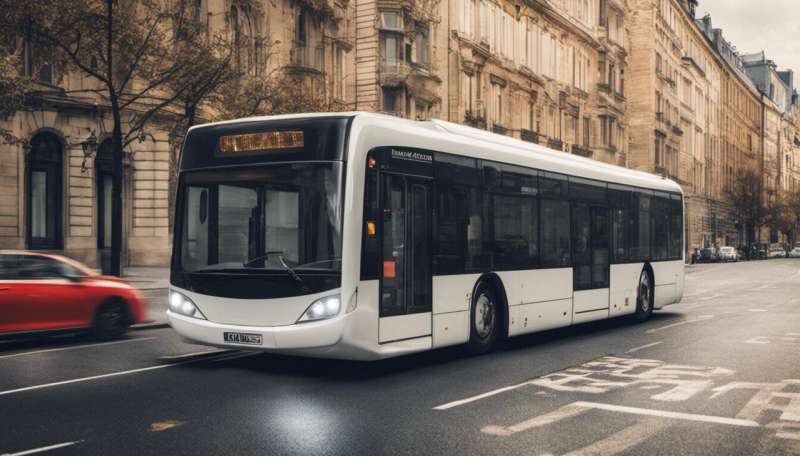Credit: AI-generated image (disclaimer)
Would you like to take a ride on a driverless bus? This will be possible in five European cities between April and October 2020, where autonomous buses will be tested in real-life traffic conditions. Three international consortia have been awarded with contracts for the final phase of the pre-commercial procurement under the EU-funded FABULOS project. These consortia will pilot autonomous buses as part of the existing public transport systems. The initial tests will run in Gjesdal (Norway), Helsinki (Finland) and Tallinn (Estonia) in the spring and autumn. Pilots will also be launched in Lamia (Greece) and Helmond (the Netherlands).
During the demonstrations, the functionality, interoperability and security of the autonomous fleets will be evaluated, as explained in a press release on the project website. "All the pilots will take place in urban settings, but each pilot location has its own special challenges. In Gjesdal, there is a 12% incline due to the mountainous terrain, whereas in Lamia high temperatures must be successfully managed. In the Netherlands the large number of cyclists must be taken into consideration and in Helsinki the route passes the second busiest train station in the country. In Tallinn, the connection to the airport will be improved, leading to challenges with factors such as existing bus traffic."
The same press release notes that in all pilot sites, "the shuttle services will be tested to ensure the functionality of remote operability from the control room. Furthermore, the buses must be able to autonomously overtake obstacles such as parked cars." It adds: "The shuttles are expected to be driverless, and a safety person will only be allowed on board if local regulations require this."
Turnkey solution
One of the project partners is developing a turnkey transportation-as-a-service (TaaS) platform, combining both autonomous and human-driven vehicles. A press release states: "SAGA's TaaS platform includes all aspects of launching a publicly accessible autonomous vehicle service, including service design, autonomous vehicle management, and fleet routing. Using this platform, multiple automated and human-driven vehicles can be integrated into a larger public transport system, all over an open API [application programming interface]." The project partner will operate up to three vehicles in Norway and the Netherlands using both autonomous and human-driven vehicles.
Now in its final year, the FABULOS (Pre-Commercial Procurement of Future autonomous bus urban level Operation Systems) project was initiated to speed up the introduction of new types of automated transport solutions entering the European market. Project work "focuses on how cities can use automated buses in a systematic way," as stated in a periodic project report on CORDIS. "The project is applying a systematic approach—the all-inclusive solution we look for is not merely about the vehicle, but also on the fleet management capabilities, control room functions and integration in existing Public Transport."
More information: FABULOS project website: fabulos.eu/
Provided by CORDIS
























